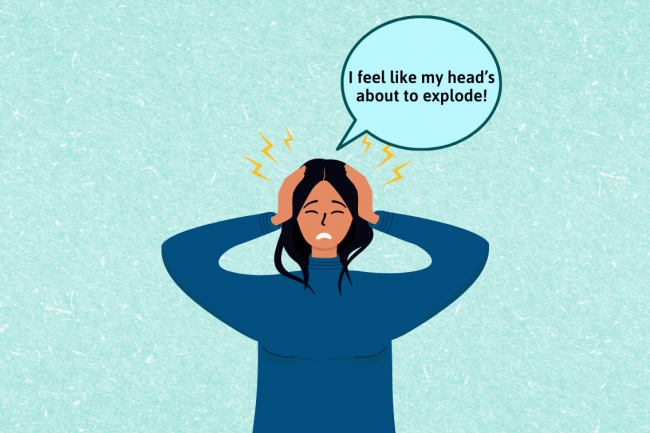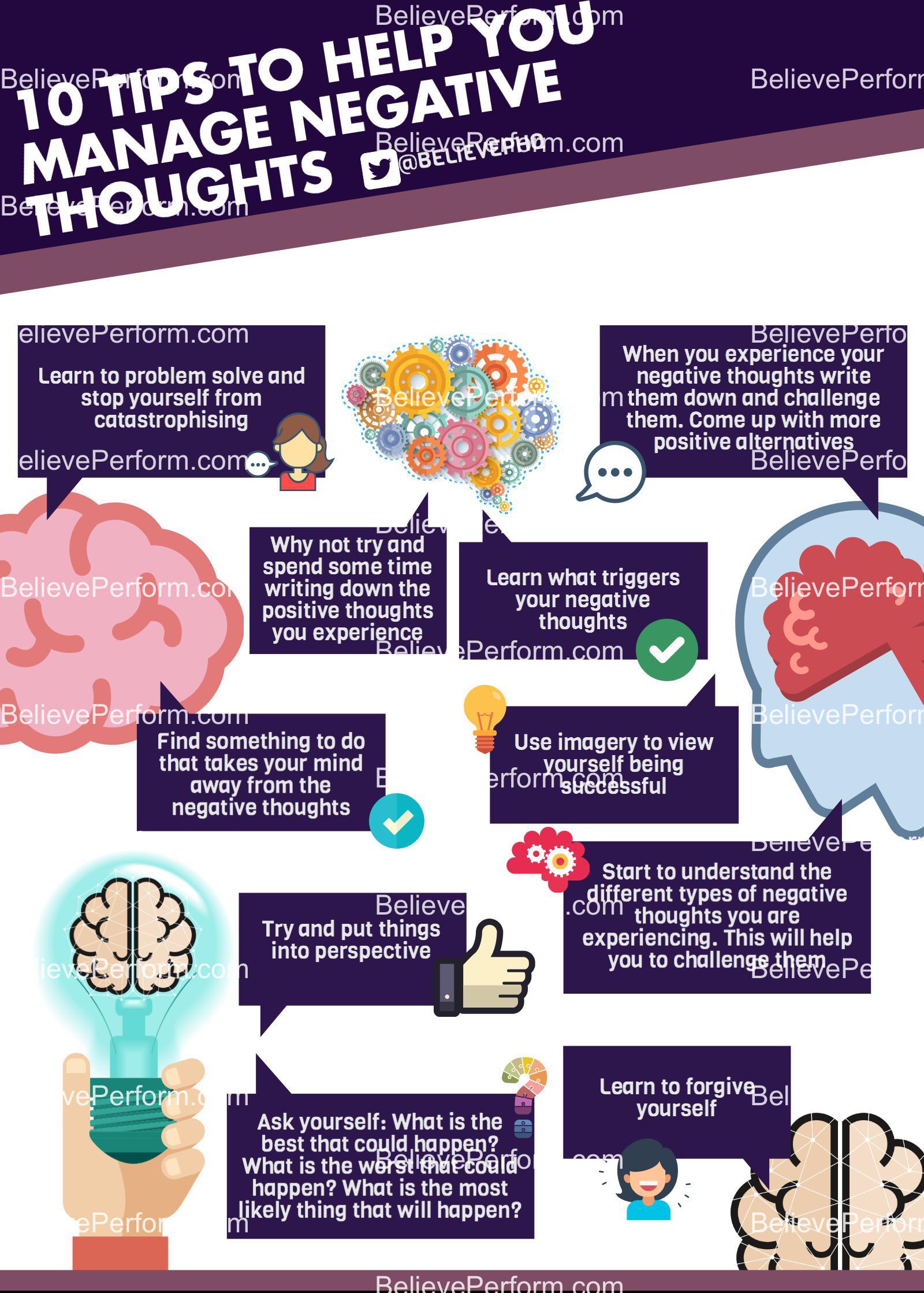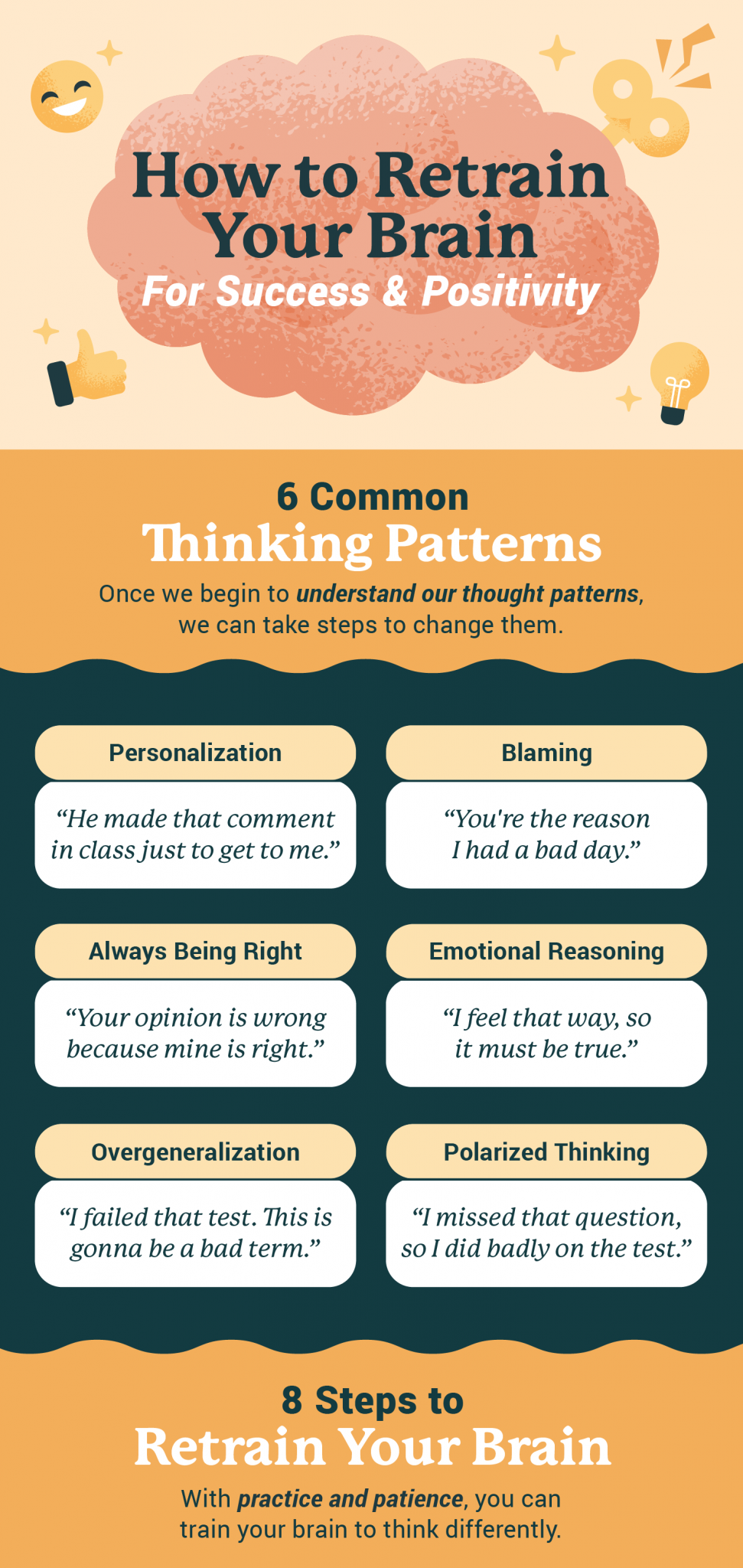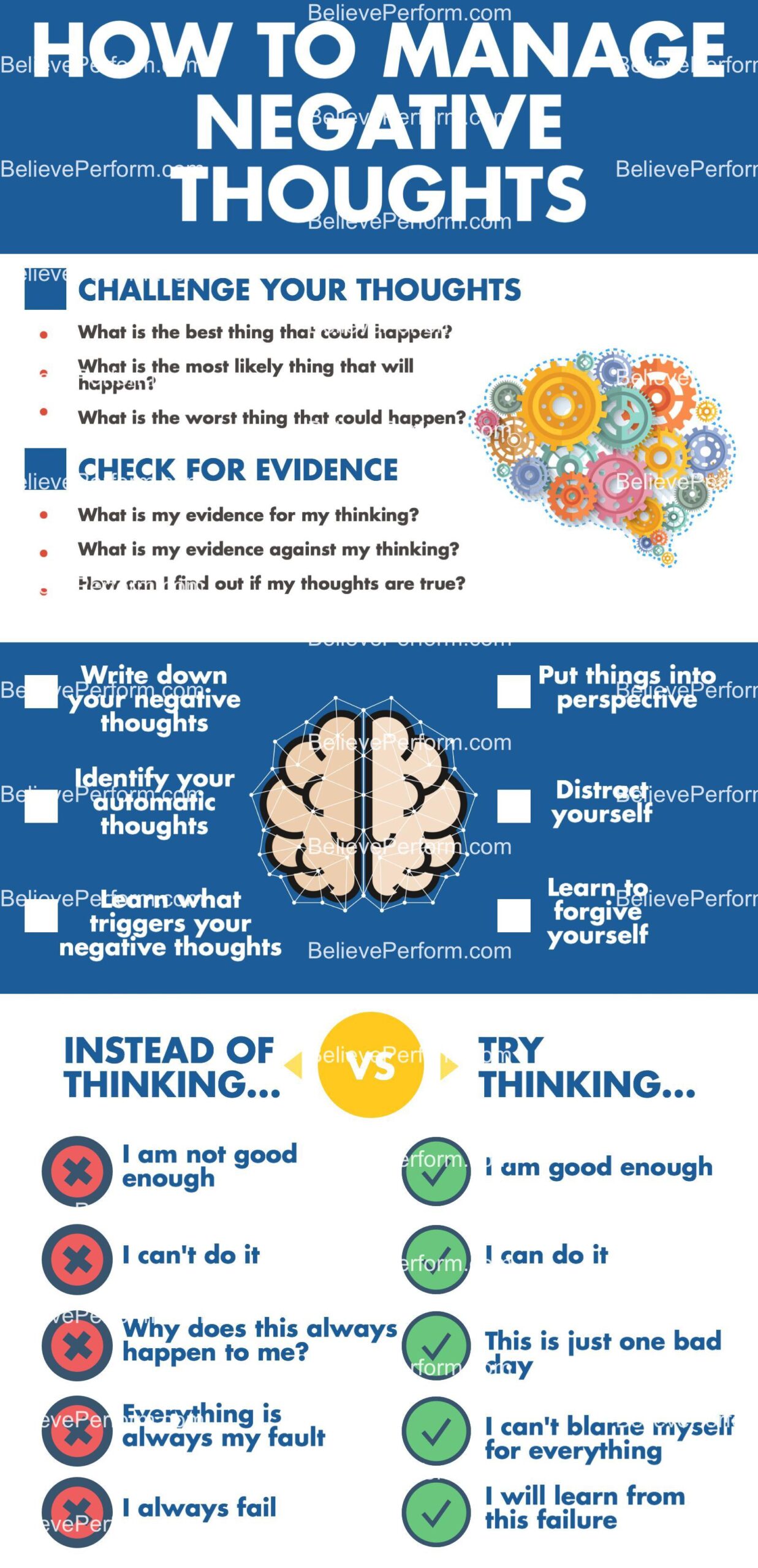How To Get Negative Thoughts Out Of Head

Imagine this: you're lying in bed, ready to drift off to sleep, but your mind is a runaway train. A jumble of worries, anxieties, and self-criticisms relentlessly loop, making relaxation impossible. You toss and turn, desperately seeking a mental off-switch, but the negative thoughts cling like stubborn shadows.
This frustrating scenario is incredibly common, and while occasional negative thoughts are normal, persistent and intrusive ones can significantly impact our well-being. Learning effective strategies to manage these thoughts is crucial for improving mental health and overall quality of life.
Understanding the Roots of Negative Thinking
Negative thinking patterns often stem from a complex interplay of factors. According to the American Psychological Association, these can include genetics, environmental influences, and learned behaviors. Childhood experiences, traumatic events, and even chronic stress can contribute to a predisposition towards negative thought patterns.
Cognitive distortions, as identified by psychologist Aaron Beck, are another key element. These are irrational thought patterns that skew our perception of reality. Examples include catastrophizing (assuming the worst-case scenario), overgeneralization (drawing broad conclusions from a single event), and personalization (blaming yourself for things outside your control).
Practical Strategies for Taming the Mind
Fortunately, there are several evidence-based techniques you can use to challenge and manage negative thoughts.
Mindfulness and Meditation
Mindfulness involves paying attention to the present moment without judgment. Regular meditation practice, even for just a few minutes each day, can help you become more aware of your thoughts and emotions without getting swept away by them.
By observing your thoughts as they arise, you can begin to detach from them and recognize that they are just thoughts, not necessarily facts. This creates space for greater objectivity and reduces the power of negative self-talk. Many apps and online resources offer guided meditations specifically designed for managing negative thoughts and anxiety.
Cognitive Restructuring
This technique involves identifying and challenging the cognitive distortions that fuel negative thinking. When you notice a negative thought, ask yourself: Is this thought based on facts or feelings? What evidence do I have to support this thought? Is there another way of looking at this situation?
By questioning the validity of your negative thoughts, you can begin to replace them with more balanced and realistic perspectives. This process often requires practice and patience, but it can be incredibly effective in breaking the cycle of negative thinking. Keeping a thought journal can be helpful for tracking and analyzing your thought patterns.
Behavioral Activation
Sometimes, negative thoughts lead to inactivity and social withdrawal, which can further exacerbate negative feelings. Behavioral activation encourages you to engage in activities that you find enjoyable or meaningful, even when you don't feel like it.
This could involve spending time in nature, pursuing a hobby, connecting with friends and family, or volunteering. Engaging in positive activities can boost your mood, provide a sense of accomplishment, and shift your focus away from negative thoughts. Start small and gradually increase the frequency and intensity of activities as you feel more comfortable.
Seeking Professional Help
If you're struggling to manage negative thoughts on your own, don't hesitate to seek professional help. A therapist can provide guidance, support, and evidence-based treatments such as cognitive behavioral therapy (CBT), which is specifically designed to address negative thinking patterns.
The National Institute of Mental Health emphasizes the importance of early intervention for mental health concerns. Talking to a mental health professional is a sign of strength, not weakness, and can be a crucial step towards reclaiming your mental well-being.
A Path Towards Mental Well-being
Learning to manage negative thoughts is an ongoing process, not a one-time fix. Be patient with yourself, celebrate small victories, and remember that setbacks are a normal part of the journey. By incorporating these strategies into your daily life, you can gradually cultivate a more positive and resilient mindset.
The goal isn't to eliminate negative thoughts entirely, but to learn how to respond to them in a healthy and constructive way. With consistent effort and self-compassion, you can create a more peaceful and fulfilling inner world.


















